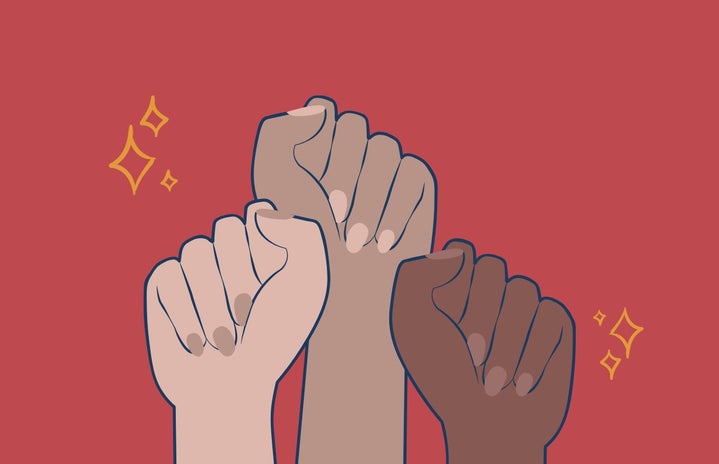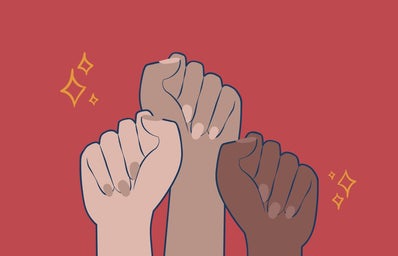Privilege comes in many different forms, but the one I’ve grown to know that I carry in America is my white privilege. Growing up, I didn’t really understand the power that it had; I thought since I was biracial it didn’t necessarily apply to me. The fact of the matter is that privilege is just about how people perceive me. And people see me as white.
Throughout my walks of life, time and time again, I’ve met so many white people that say they’re just not that “political of people,” and growing up I didn’t really know how to respond to that. Was fighting for the injustice in America a personality trait? It infuriated me that they were allowed to turn on and off their empathy. Some politics were “outrageous” while others were “just the way things were.” When white people fight for policies that affect minority communities, they see it as altruistic. In reality, they were the ones who created the policies and the systematic racism in America. It should be the responsibility of white people in America to help fix that, not a choice.
As a white person in America, you don’t have to be afraid to walk down your street, drive your car, or even be in your home for that matter. You don’t have to be afraid for your child’s life, and explain to them that you can be right and dead at the same time. And if you are afraid, it’s not because of the color of your skin.
There were times in my life that calling out people’s offensive remarks felt weird and uncomfortable. But there’s no room in my life for people that carry hate in their hearts, so I put aside my discomfort. The reality is that even though it makes me uncomfortable to call someone out when what they say or do is offensive, it’s also pretty uncomfortable to live in a society that was built to oppress you.
Even though I say there’s no room in my life for people to hate, there’s a lack of knowledge and understanding for the implications behind someone’s actions or words. I’m not using that as an excuse because everyone needs to be an active participant in learning. If you were raised not knowing any better, it just means you have to actively learn and ask questions to understand, so that you can do better.
That being said, no one’s perfect, I’m constantly learning new things that make me a better ally. The moral of the story is to be receptive to any feedback on how what you’re doing or saying could be offensive. Since we’re built in a society that functions off of racism, we’re bound to not know everything. It’s a growing process, and no one’s perfect. However, we absolutely have to try, and keep trying, as an ally who supports, but doesn’t try to lead. Because I don’t think I can take seeing another minority in America being killed because of their race, and you shouldn’t either.





